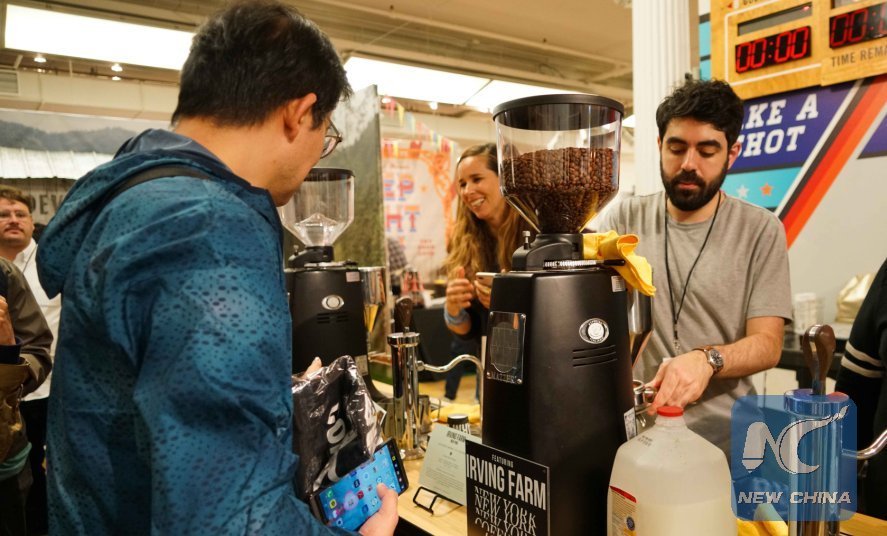
A barista makes coffeefor a vistor at the New York Coffee Festival in New York, the United States, Oct. 12, 2018. The Festival featured over 100 exhibitors withcoffee tasting, live latte art and workshops. (Xinhua/Lin Bilin)
CHICAGO, Nov. 15 (Xinhua) -- The more sensitive people are to the bitter taste of caffeine, the more coffee they drink, reported a study from Northwestern Medicine and QIMR Berghofer Medical Research Institute in Australia.
In the study population, people who were more sensitive to caffeine were drinking a lot of coffee and consumed low amounts of tea. The sensitivity is caused by a genetic variant.
The study, published in Scientific Reports Thursday, also found people sensitive to the bitter flavors of quinine and of PROP, a synthetic taste related to the compounds in cruciferous vegetables, avoided coffee.
For alcohol, a higher sensitivity to the bitterness of PROP resulted in lower alcohol consumption, particularly of red wine.
"The findings suggest our perception of bitter tastes, informed by our genetics, contributes to the preference for coffee, tea and alcohol," said senior author Marilyn Cornelis, assistant professor of preventive medicine at Northwestern University Feinberg School of Medicine.
For the study, the researchers applied Mendelian randomization, a technique commonly used in disease epidemiology, to test the causal relationship between bitter taste and beverage consumption in more than 400,000 men and women in the United Kingdom.
The genetic variants linked to caffeine, quinine and PROP perception were previously identified through genome-wide analysis of solution taste-ratings collected from Australian twins.
These genetic variants were then tested for associations with self-reported consumption of coffee, tea and alcohol in the current study.
"Taste has been studied for a long time, but we don't know the full mechanics of it," Cornelis said. "Taste is one of the senses. We want to understand it from a biological standpoint."

